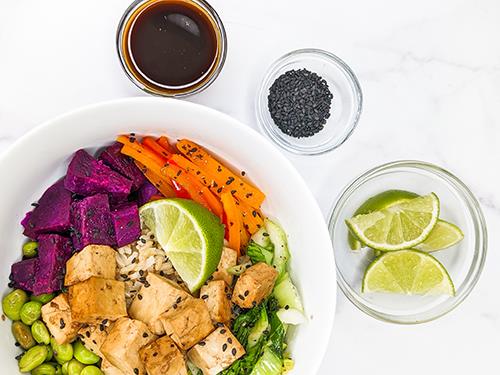Steps for creating SMART new habits
Aug 24, 2020

There’s no reason to wait for New Year’s resolutions to start making healthy new habits. In fact, the change of seasons is a great time to look at where you could make healthier choices.
To make that easier, Dr. Brittney Mensen, who sees patients of all ages at Adventist Health’s Gresham Station clinic, suggests making SMART goals. SMART means specific, measurable, attainable, relevant and time-bound.
Making goals SMART helps you avoid pitfalls like crash diets, unrealistic exercise plans and vague ideas like “get enough sleep” that come with no plan for how to achieve them. SMART goals can take many forms, from food to mental health.
Diet changes
When it comes to what you eat and drink, Dr. Mensen recommends starting small, like cutting out soda instead of trying to give up sugar entirely. Making healthier substitutions, like drinking naturally flavored carbonated water instead of sugary soda, can be small changes that gradually make a big difference in your health.
Another idea is to try online grocery ordering, either for pickup or delivery. In addition to saving time so you can relax or get in a little more physical activity, online shopping helps you avoid impulse buying of less healthful foods.
If you have questions or want more guidance on the right eating plan for your specific needs and health, ask your primary care provider for a referral to a registered dietician.
Exercise additions
Especially with the coronavirus pandemic, many of us are getting less exercise. Gyms and pools are often closed or have limited access. Many group sports opportunities are shut down too.
With that in mind, Dr. Mensen suggests adding about 30 minutes of moderate activity to your day. Outdoor options like walking, hiking and cycling provide the social distancing and circulation that help keep COVID-19 at bay. Plan to wear a mask if you can’t keep at least 6 feet from other people while exercising, even outside.
Before you begin any new exercise program, have a talk with your primary care doctor or nurse practitioner. They can help you plan a program that helps any chronic medical conditions you have and prevents any new problems from developing.
Water for health
Another good topic to discuss with your health care provider is how much water is ideal for you. Your medical condition may require you to adjust your water intake.
Most adults need eight to 10 glasses of water each day, with more needed with exercise or hot days. Keep in mind many healthy food choices like watermelon, citrus, grapes and greens help you stay hydrated. On the other hand, alcohol, sugary soda and coffee can deplete your body’s water.
Mental health checkup
“This COVID-19 pandemic has been challenging for a lot of people since, as human beings, we are naturally social creatures,” says Dr. Mensen. She recommends making a point to use video apps like Zoom, FaceTime and WhatsApp to help you maintain your social connections during this difficult time.
More than ever, your mental health is key to your entire wellness. If you need help finding ways to relieve your anxiety and stress or if you find yourself struggling with your mood, set a time to meet witha professional counselor.They’ll help you look at what is going on and take steps toward a healthier, happier life.
Rewards and support for new habits
As social creatures, we need the support of our friends and family as we create healthy new habits. SMART goals help with this too. “Family and others around you are more likely to be on board with these changes if they are realistic and sustainable,” says Dr. Mensen.
Often families work together to make healthful changes. Partners and children benefit too from making wise food choices and taking time for physical activities together. If someone in your family insists on having foods that might sabotage your goals, it’s OK to ask them to hide that food and not eat it around you.
It’s also important that you reward yourself for your good choices. Some of the rewards come automatically as you feel better. But frequent and tangible rewards are great ways to help you stay on track.
“Determine how much money you already spend engaging in unhealthy behaviors every month,” Dr. Mensen suggests. “Keep that money in a jar until you have enough to purchase a book, a new article of clothing or take a trip that allows for social distancing due to COVID-19.” You could also donate the money to a cause you believe in. Just be sure you don’t reward yourself with junk food or other things that don’t support your hard work.
New habits don’t form instantly. Your primary care provider can support you as you create new, healthy habits way before New Year’s Day demands it.
If you don’t have aprimary care doctor or nurse practitioner, call us at 503-261-6929. We are happy to find one that fits your needs and location best.


